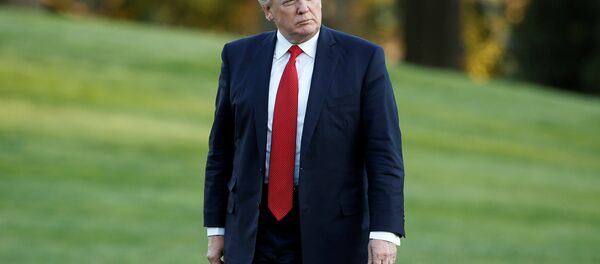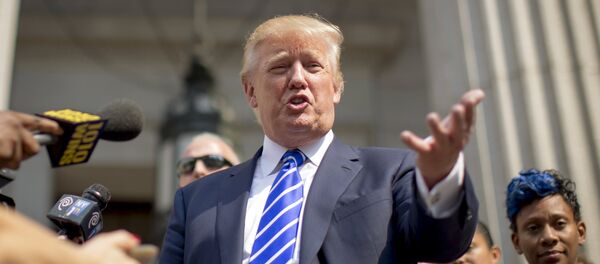Kristian Rouz — Contrary to the Congress Republicans' expectations, the tax reform to be announced by President Donald Trump on Wednesday is poised to be more moderate than initially expected. The White House is seeking ways to boost economic growth without excessively increasing budget expenditures, in part, in order to avoid the government shutdown. Therefore, with initially milder measures to be undertaken, additional reforms will likely be implemented gradually over the coming years, funded by the increased tax revenues resulting from the gains in overall GDP expansion.
President Trump wants to cut business income taxes to 15pc and lower individual income taxes across-the-board, also simplifying the tax code by replacing the existing seven tax brackets to just three. Whilst the announcement, which will be delivered on Wednesday, is still subject of discussions between the administration, the Congress and the Treasury officials, the White House provided a preliminary outline of the key elements of the reform package.
The White House and the GOP leaders in Congress generally agree that both business and individual taxes must be lowered in order to ensure a substantial economic acceleration. However, Trump is more radical on business tax, hoping to cut it to 15pc, whilst the GOP envision a cut to 20pc (from the current 35pc), as the Republicans are concerned with budget sustainability. Budget neutrality is necessary, according to the law, in order to pass the tax reform in Congress without Democratic support, which it won't be there, naturally.
Treasury Secretary Steven Mnuchin said boosting economic expansion and job creation are the White House's top priorities, whilst revenue neutrality is secondary at best, which reflects Trump's approach to debt: the president does not mind increased governmental borrowing.
"The tax plan will pay for itself with economic growth," Mnuchin said.
Mnuchin said the tax code will be simplified and the middle class will see the biggest cut in taxes. Americans will be able to file tax returns ‘on a postcard'. The Treasury is hoping these measures will spur business activity and produce more jobs, whilst the repatriation of capital and manufacturing would contribute to higher salaries and wages.
Meanwhile, the disagreements between the White House and the Congress over the business tax cuts are becoming somewhat of a concern.
"That's the beginning of a negotiation," Stephen Moore, ex-Trump adviser on taxes, said discussing whether the new business tax will be 15 or 20pc. "Maybe we end up with 17.5pc," he added.
Budget expenditures are inevitably poised to increase, however, in the first year or two after the tax reform is passed in the Congress. Trump has repeatedly discussed his $1-trillion infrastructure investment plan, and, according to members of the Trump team, Australia's recent experience financing infrastructure projects in a business-friendly environment serves as a proper example to the US administration.
"The gospel is that the government sets goals, and is bureaucratic," said Steven Roth, one of Trump's advisers and CEO of Vornado Realty Trust in New York, said. "The private sector is entrepreneurial and more efficient. The process is improved by switching over from government-managed to private-managed as early as possible."
Besides, Australian experts have already worked on infrastructure projects in Indiana, which are seen as successful by the White House. Toll roads, as in Indiana, is one way to approach the issue, but given the federal government is willing to boost spending and then hand the project into private hands, the process might go faster than in Indiana.
"Given everybody's relative frustration with what's going on now, I'm optimistic we'll be able to make some difference in how the federal government regulates that activity," New York construction mogul Richard LeFrak, also a member of the Trump team, said.
The only issue is funding these projects and simultaneously avoiding government shutdowns, as it happened in late 2013. While it is being discussed between Trump and the GOP leaders, a weighted solution might arrive on Wednesday, or else the reform feasibility debate might mar its implementation.





